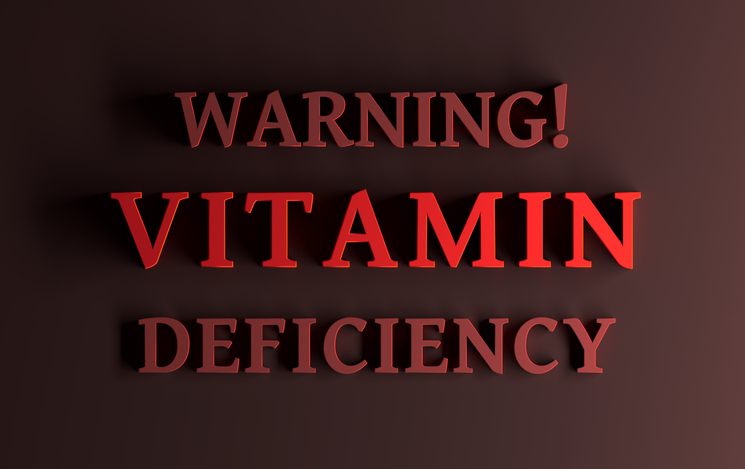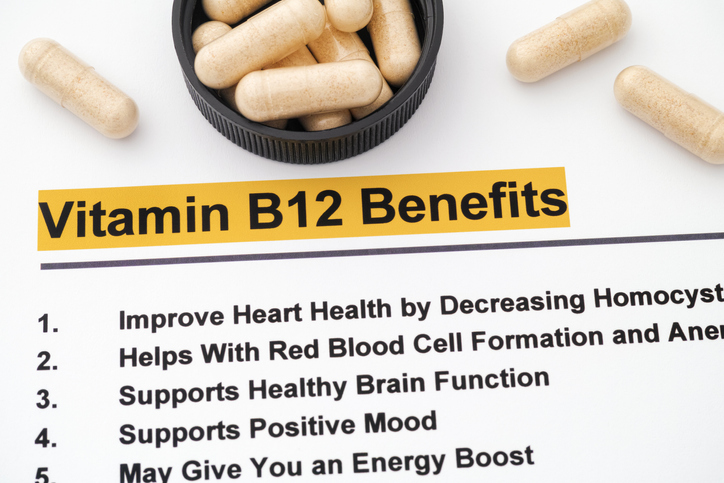Young Woman’s Limbs Went Numb From Vitamin B12 Deficiency.

By Joy Stephenson-Laws, JD, Founder
As much as I use my arms and legs, one of my biggest fears is not being able to feel them. So, I developed a bit of anxiety when I read the following recent story.
A young woman living in Manhattan named Kelly Rissman said all of her limbs went tingly and numb due to having a vitamin B12 deficiency. At first, she went to urgent care to seek help for the odd issue she was having with her limbs. About 24 hours prior to that, she seemed just fine. She even went for her routine morning run and then went to work.
“I hobbled over to a nearby urgent-care center, where the doctor told me the tingling could be explained by a viral infection, even though she didn't run any tests or give me any prescriptions. I left feeling even more hopeless than when I had stumbled in — and more tingly,” she wrote, in this article sharing her story.
It was not until she underwent an “extensive blood-work panel” and received her results that she discovered she was B12 deficient.
“As I waited five days for results, I became so weak that it was debilitating; I couldn't even take a lap around my block.”
Vitamin B12 serves many purposes in the body, such as helping make DNA and red blood cells (that carry oxygen to your organs and give you energy and help prevent fatigue). B12 also helps keep your brain and immune system healthy and plays a role in preventing a type of anemia called megaloblastic anemia, which may leave you feeling tired and weak. Not only is having sufficient B12 important for preventing and fighting disease and giving your body energy, but it may also play a major role in your mental health. B12 is sometimes referred to as the “happy vitamin.”
Kelly described the sensation she felt in her limbs as “pins and needles.” This is actually called paresthesia. I have experienced this too (in my calves and feet) from not getting enough B12. I eat mainly a plant-based diet (which is very healthy and nutrient-rich), however, vegans, vegetarians and those who are “reducetarian” are at a risk for vitamin B12 deficiency because B12 is mainly found in animal foods such as meat and eggs. Kelly did not discuss her diet in the article she wrote, but my guess is that she may not eat much animal foods or take a vitamin B12 supplement.
What’s really concerning is that severe B12 deficiency can cause neurological issues and if left untreated, this can lead to irreversible damage. This is why it is so critical to undergo routine comprehensive nutrient tests (which are blood and urine tests) in order to determine any nutrient imbalances or deficiencies, take quality supplements per the advice of a competent healthcare practitioner and never ignore your symptoms.
Aging, weight loss surgery such as gastric bypass and an autoimmune condition called pernicious anemia are additional risk factors for B12 deficiency.
I want to bring to your attention another recent story about a young person who experienced B12 deficiency.
“A 15-year-old vegetarian boy presented with easy fatigue, breathlessness and pain in the legs on walking, noted during the past few weeks,” according to one report.
“Paleness and jaundice in the whites of his eyes had been noted by the parents for about two years, although these findings became more obvious within the last few weeks.The vegetarian patient had not consumed any food of animal origin for many years…”
The report notes that the family “only rarely ate fresh fruits and vegetables.” You can not be sufficiently nourished if you cut out animal foods and rarely eat fresh fruits and veggies. And even if you eat all of the animal foods in the world (and really you should do this in moderation and avoid processed meats as much as possible), your diet still needs to be rich in nutrient, antioxidant-rich produce in order to be nutritionally balanced and help fight off disease.
The boy’s heart rate was also too high, and he was diagnosed with severe vitamin B12 deficiency. Fortunately, his condition improved after undergoing vitamin B12 replacement therapy.
It is, however, extremely important to be proactive if you are maintaining a diet that excludes major food groups and talk to a competent healthcare practitioner about supplementation. There are some plant sources of B12 such as nori, nutritional yeast and fortified plant milk, but it is still very important to get your blood panel so you know where you stand and discuss supplementation.

This can be dangerous as well. Check out this pH Labs blog about my friend who was getting too much B12. Also check out this blog about a man who overdosed on vitamin D and another man who overdosed on vitamin B6.
Do not forget your other B vitamins.There are eight essential B vitamins, and some of these vitamins may help fight non-alcoholic fatty liver disease.
I hope all of these stories encourage you to eat a nutrient-rich diet, get a nutrient test and supplement safely. Doing these three things is a great way to enhance your life and very possibly longevity.
Enjoy your healthy life!
Disclaimer: This article is not intended to provide medical advice. Please consult with your doctor or another competent healthcare practitioner to get specific medical advice for your situation.
The pH professional health care team includes recognized experts from a variety of health care and related disciplines, including physicians, attorneys, nutritionists, nurses, and certified fitness instructors. This team also includes the members of the pH Medical Advisory Board, which constantly monitors all pH programs, products, and services. To learn more about the pH Medical Advisory Board, click here.







